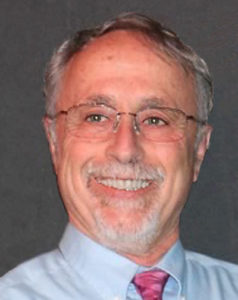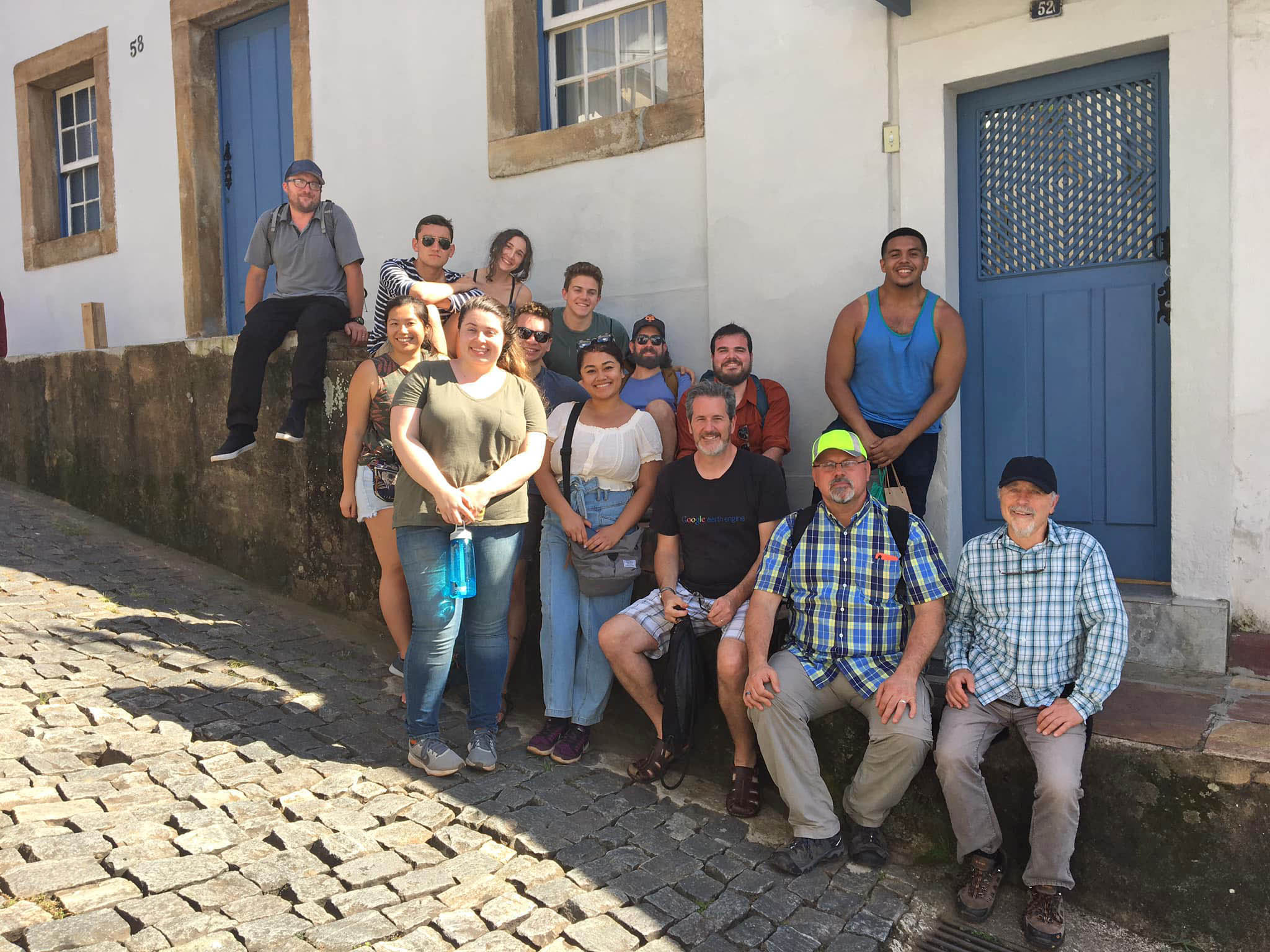By Catarina Kidd, AICP
 Alex Hinds is an International Director for APA California – Northern Section. He co-founded, and was a senior consultant to, the Center for Sustainable Communities at Sonoma State University. He was a planning lecturer at Sonoma State and at Cal Poly, SLO. From 1984–2008, Hinds served successively as Planning Director for Lake County, Planning and Building Director for San Luis Obispo County, and Community Development Agency Director for Marin County, where he lives. He holds a master’s degree in social science (cross-cultural community environmental management) from the United States International University in San Diego, and a bachelor’s degree (applied ecology) from the University of Hawaii, New College. Hinds is best known for leading the trend-setting 2007 Marin Countywide Plan update and its nationally recognized implementation programs addressing sustainability and climate change.
Alex Hinds is an International Director for APA California – Northern Section. He co-founded, and was a senior consultant to, the Center for Sustainable Communities at Sonoma State University. He was a planning lecturer at Sonoma State and at Cal Poly, SLO. From 1984–2008, Hinds served successively as Planning Director for Lake County, Planning and Building Director for San Luis Obispo County, and Community Development Agency Director for Marin County, where he lives. He holds a master’s degree in social science (cross-cultural community environmental management) from the United States International University in San Diego, and a bachelor’s degree (applied ecology) from the University of Hawaii, New College. Hinds is best known for leading the trend-setting 2007 Marin Countywide Plan update and its nationally recognized implementation programs addressing sustainability and climate change.
What are some hot topics in your world?
Where I live in West Marin, the perennially hot topics are sea-level rise, climate change, wildfires, and Tule Elk and cows in the Point Reyes National Seashore. I support continuing to affordably lease appropriate agricultural lands in the National Seashore so long as the operations practice exemplary environmental and agricultural stewardship.
How and where do you work now?
I mostly volunteer. Recently, Northern Section’s co-International Director Hing Wong, AICP, and I collaborated on a series of Zoom-based Covid Conversations with the Chilean Planners Network and APA members in the California, New York Metro, and Illinois Chapters. We are currently working on a new initiative — Connecting the Americas: Collaborative Planning, North and South — that is intended to be mindful of our shared circumstances and to be more accessible to students and emerging planners. I am also a member of and participate in the projects of the California Planning Roundtable.
What was your first job as a planner and its impact on your trajectory?
My first job was in El Centro, California, a small city (now about 44,000) seven miles from the Mexico border. I had a great boss who let me do interesting work: I coordinated their general plan update and a redevelopment plan, oversaw a geothermal park feasibility study, and established a recycling center. I learned a lot, made lifelong friends, and gained invaluable experience.
Tell us about Northern Section’s international tours.
Purposeful international travel accelerates learning! Northern Section has led tours to Cuba (2003), China (2007), India (2009), Brazil (2012), Eastern Europe (2014), and Southeast Asia (2017). No other APA section or chapter has such a program. In light of the pandemic, our international activities that require in-person attendance remain temporarily suspended. Planners can learn about future tours on the Northern Section website.
My favorite tour was to lively and diverse Brazil. I have since returned several times to work on Section-sponsored collaborations. Our collaboration work gained traction after connecting with Bruno Borges, an emerging planner in Brazil, who then accepted an ABAG internship. After returning to Brazil, Borges was essential to establishing our initial collaboration with Sao Paulo staff, focused on regional planning and governance.
Our next project was in Ouro Preto, a city of 70,000 some 250 miles north of Rio. There, we partnered with city staff, San Jose State, and the Veloso Community Association on a variety of safety and sustainable development issues. I’ll always cherish their warm welcome. City Attorney Celso Carvalho picked us up at dawn on a Sunday so we could attend a local holiday celebration complete with colorful pilgrims from all over Brazil assembled in a massive parade.

Who or what has influenced your work?
I had the good fortune to work with or learn from many excellent practitioners. Si Eisner, an APA Planning Pioneer, showed me how images can enrich public discourse and decision-making. Barry Commoner, professor and author of 1971’s The Closing Circle, drove home the importance of understanding ecosystems, science, and technology. And Sim Van der Ryn, a green building and planning advocate who became California’s State Architect and director of the California Office of Appropriate Technology, influenced me.
Back in the day, I would read counter-cultural publications such as the Bay Area-based Whole Earth Catalog and Co-Evolution Quarterly. I dropped out of college for a while, took up organic farming with my older brother before going on to grad school, then went to South America under the Fulbright-Hays Program to study the impacts of colonization on the Ecuadorian Amazon. Rather than becoming an “eco outlaw,” I decided to infiltrate the planning profession to try to change planning rules from the inside.
Were there moments that changed your worldview?
Early on, I was influenced by the ecology, civil rights, and peace movements. Although the planning profession has a noble history of helping make cities healthier and more livable, our profession also has been associated with privilege and many unfair zoning practices that made it difficult for less affluent people to share in regional prosperity and homeownership. Working up and down California in both poorer and more affluent communities, I sought to not automatically carry on past practices.
What career advice do you have for planners?
- Your first job may be the hardest to get; be flexible on location and pay.
- Play to your strengths. Where appropriate, volunteer to work above your pay grade.
- Be respectful to all, and generous with praise.
- Strive to address compelling issues and desirable outcomes.
- Keep current with science as we transition away from fossil fuels; update policies and codes accordingly.
- Pursuing awards is not a superficial pursuit. Showcasing your (or your team’s) best work helps spread the word on what is working.
- Maintain your credibility.
- Be empathetic, and be a good listener and a good communicator.
Where and to what do you turn for joy and balance?
I swim in the open waters in nearby Tomales Bay; hike and travel in inspirational settings with my wife; spend time with the grandkids; and enjoy Latin American, Cuban, and Africa music. Planning can be very stressful, so it helps to have an active family and a social network.
Interviewer Catarina Kidd, AICP, is senior development manager at FivePoint and a guest writer for Northern News. All interviews are edited.

